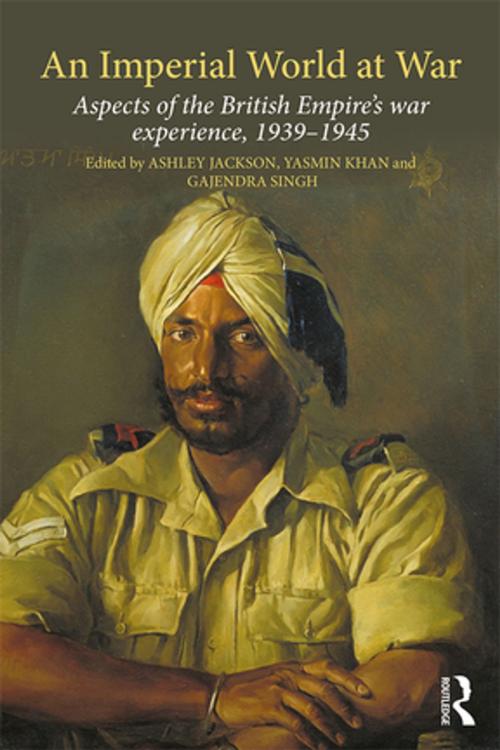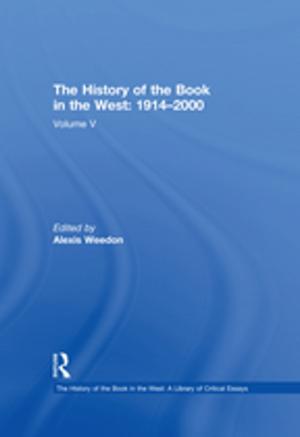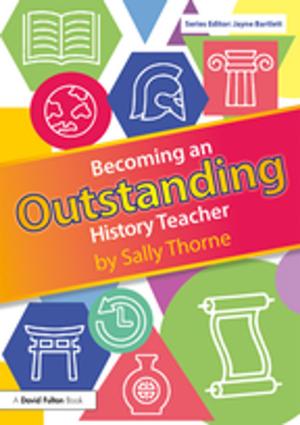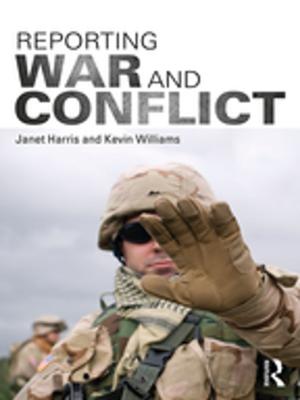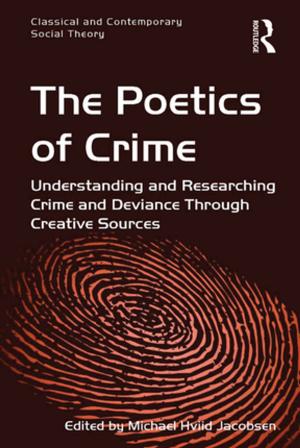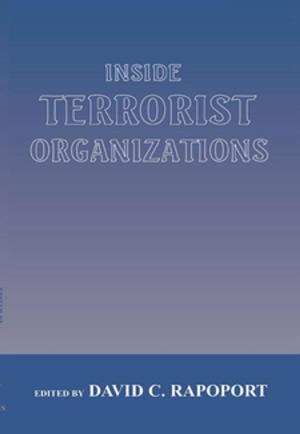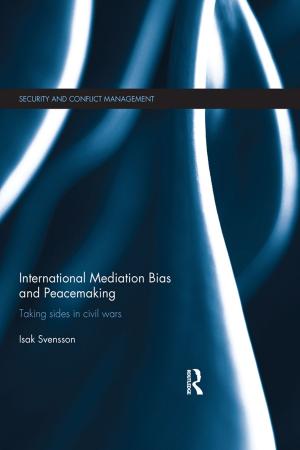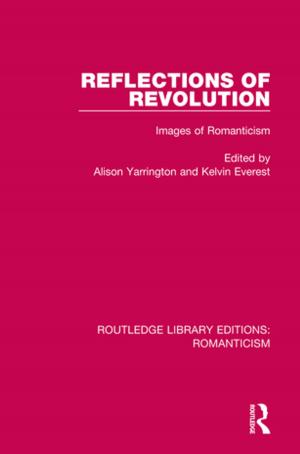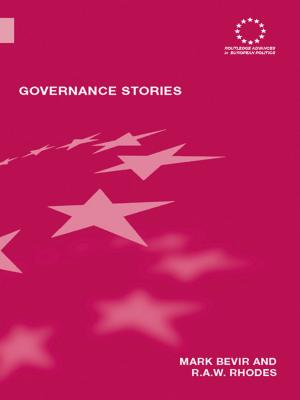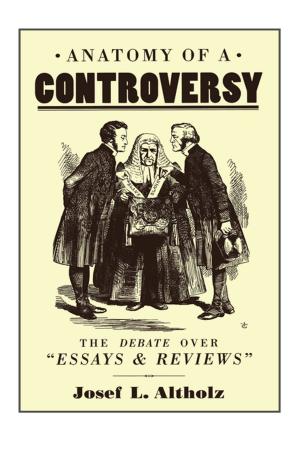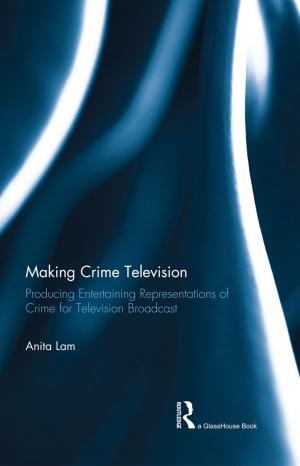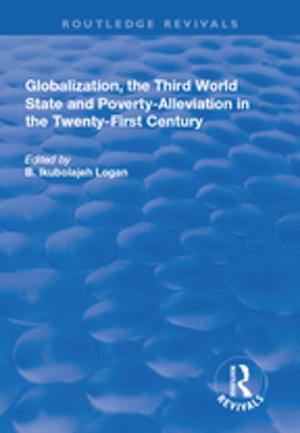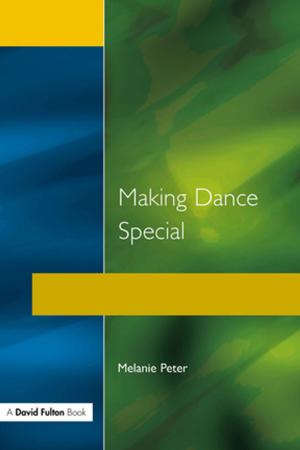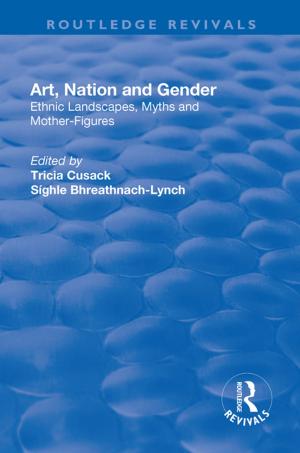| Author: | ISBN: | 9781317181897 | |
| Publisher: | Taylor and Francis | Publication: | July 1, 2016 |
| Imprint: | Routledge | Language: | English |
| Author: | |
| ISBN: | 9781317181897 |
| Publisher: | Taylor and Francis |
| Publication: | July 1, 2016 |
| Imprint: | Routledge |
| Language: | English |
At the start of the Second World War, Britain was at the height of its imperial power, and it is no surprise that it drew upon the global resources of the Empire once war had been declared. Whilst this international aspect of Britain’s war effort has been well-studied in relation to the military contribution of individual dominions and colonies, relatively little has been written about the Empire as a whole. As such, An Imperial World at War makes an important contribution to the historiography relating to the British Empire and its wartime experience. It argues that the war needs to be viewed in imperial terms, that the role of forces drawn from the Empire is poorly understood and that the war's impact on colonial societies is barely grasped at all in conventional accounts. Through a series of case studies, the volume demonstrates the fundamental role played by the Empire in Britain’s war effort and highlights some of the consequences for both Britain and its imperial territories.Themes include the recruitment and utilization of military formations drawn from imperial territories, the experience of British forces stationed overseas, the use of strategic bases located in the colonies, British policy in the Middle East and the challenge posed by growing American power, the occupation of enemy colonies and the enemy occupation of British colonies, colonial civil defence measures, financial support for the war effort supplied by the Empire, and the commemoration of the war. The Afterword anticipates a new, decentred history of the war that properly acknowledges the role and importance of people and places throughout the colonial and semi-colonial world.’
This volume emanates from a conference organized as part of the ‘Home Fronts of the Empire – Commonwealth’ project. The project was generously funded by the Arts and Humanities Research Council and led by Yasmin Khan and Ashley Jackson with Gajendra Singh as Postdoctoral Research Assistant.
At the start of the Second World War, Britain was at the height of its imperial power, and it is no surprise that it drew upon the global resources of the Empire once war had been declared. Whilst this international aspect of Britain’s war effort has been well-studied in relation to the military contribution of individual dominions and colonies, relatively little has been written about the Empire as a whole. As such, An Imperial World at War makes an important contribution to the historiography relating to the British Empire and its wartime experience. It argues that the war needs to be viewed in imperial terms, that the role of forces drawn from the Empire is poorly understood and that the war's impact on colonial societies is barely grasped at all in conventional accounts. Through a series of case studies, the volume demonstrates the fundamental role played by the Empire in Britain’s war effort and highlights some of the consequences for both Britain and its imperial territories.Themes include the recruitment and utilization of military formations drawn from imperial territories, the experience of British forces stationed overseas, the use of strategic bases located in the colonies, British policy in the Middle East and the challenge posed by growing American power, the occupation of enemy colonies and the enemy occupation of British colonies, colonial civil defence measures, financial support for the war effort supplied by the Empire, and the commemoration of the war. The Afterword anticipates a new, decentred history of the war that properly acknowledges the role and importance of people and places throughout the colonial and semi-colonial world.’
This volume emanates from a conference organized as part of the ‘Home Fronts of the Empire – Commonwealth’ project. The project was generously funded by the Arts and Humanities Research Council and led by Yasmin Khan and Ashley Jackson with Gajendra Singh as Postdoctoral Research Assistant.
